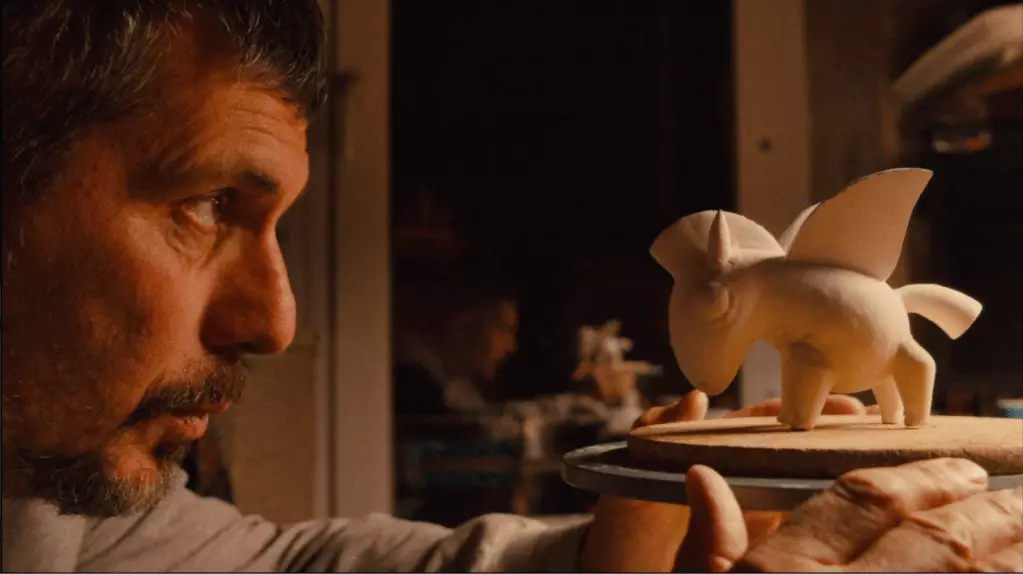In the realm of artistic expression, seldom do documentaries emerge that encapsulate both a nation’s turmoil and the resilience of its spirit. “Porcelain War,” directed by Brendan Bellomo and Slava Leontyev, offers a poignant representation of Ukraine amidst conflict. The film’s thematic essence is captured in the powerful metaphor of Ukraine being like porcelain—fragile yet resilient. Following its triumph at the Documentary Feature awards, “Porcelain War” has garnered attention not only for its cinematic excellence but also for its deep reflection on the interplay between art and resistance.
Leontyev, an artist who chose to remain in Ukraine during the ongoing crisis, serves as a compelling embodiment of resistance through creativity. Unlike traditional weapons, he asserts that the camera can wield greater influence, providing a “new brush” for him to portray his reality. This is a notable shift in the narrative surrounding wartime efforts; while firearms signify brute force, the vision captured through art signifies hope and tenacity. Such perspectives allow viewers to see conflict not solely as destruction but as a canvas for resilience.
The film has spurred support from distinguished figures in the film industry, including three-time Oscar winner Guillermo del Toro. His participation in a virtual discussion with the directors underscores the critical importance of discussing the value of art in an increasingly turbulent world. Del Toro’s comments reveal a stark awareness of the global challenges faced by artists today. He warns against the diminishing perception of art as a mere luxury or fantasy, emphasizing its intrinsic role in human resilience. By highlighting the synergy between art and the human spirit, “Porcelain War” becomes not just a documentary but a clarion call for artistic expression.
As the backdrop of the film unfolds, it coincides with notable events in the cultural landscape, including the recent restructuring of the Kennedy Center for the Performing Arts, overseen by Donald Trump. This situational irony amplifies del Toro’s cautionary message; the arts are in jeopardy of being sidelined or undervalued in times of crisis. Under such circumstances, “Porcelain War” stands out as a vital narrative that urges viewers to look beyond mere survival, towards thriving through creative expression.
With Oscar voting approaching, the filmmakers of “Porcelain War” are maximizing outreach through virtual Q&As and worldwide screenings, aiming to engage audiences in dialogues about art’s role in resistance. The participation of notable advocates—such as Chris Columbus and Julie Taymor—suggests a growing coalition of artists committed to amplifying the film’s messages. Their involvement highlights a collective understanding of art’s power in drawing attention to crucial issues while fostering cultural unity.
“Porcelain War” transcends the conventional bounds of documentary filmmaking by intertwining personal narratives with a broader commentary on war and creativity. As audiences absorb its lessons, they are invited to recognize the profound impact that art can have not only in chronicling hardships but also in shaping a resilient response to them. In a world that often undervalues creativity, this film serves as a reminder that through art, the spirit of a nation—much like porcelain—may be fragile, but it remains resolutely unbreakable.


Leave a Reply